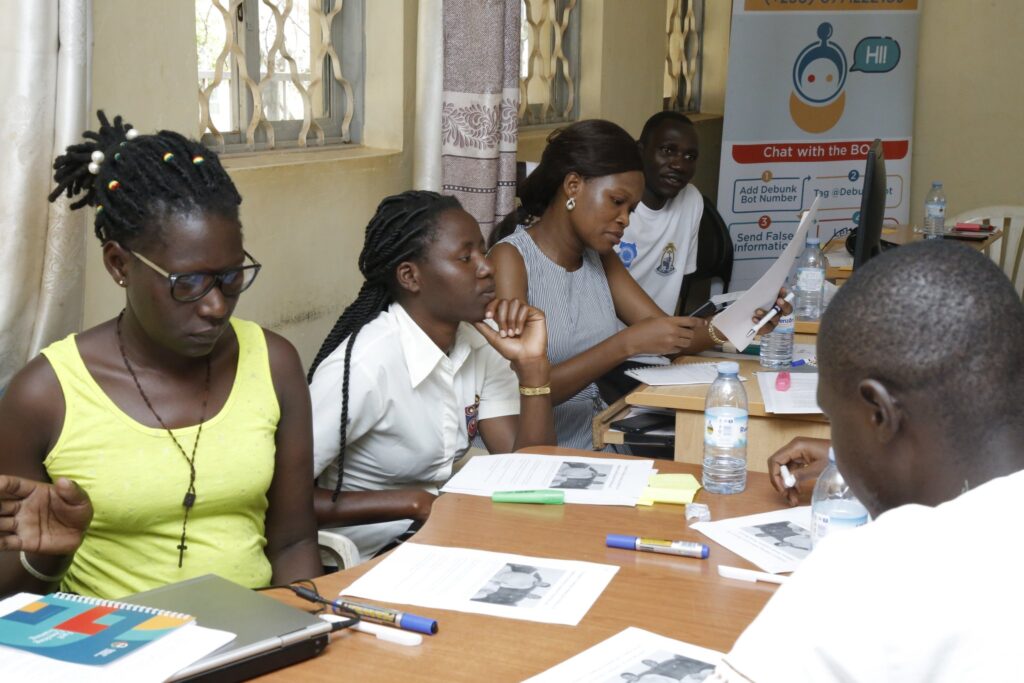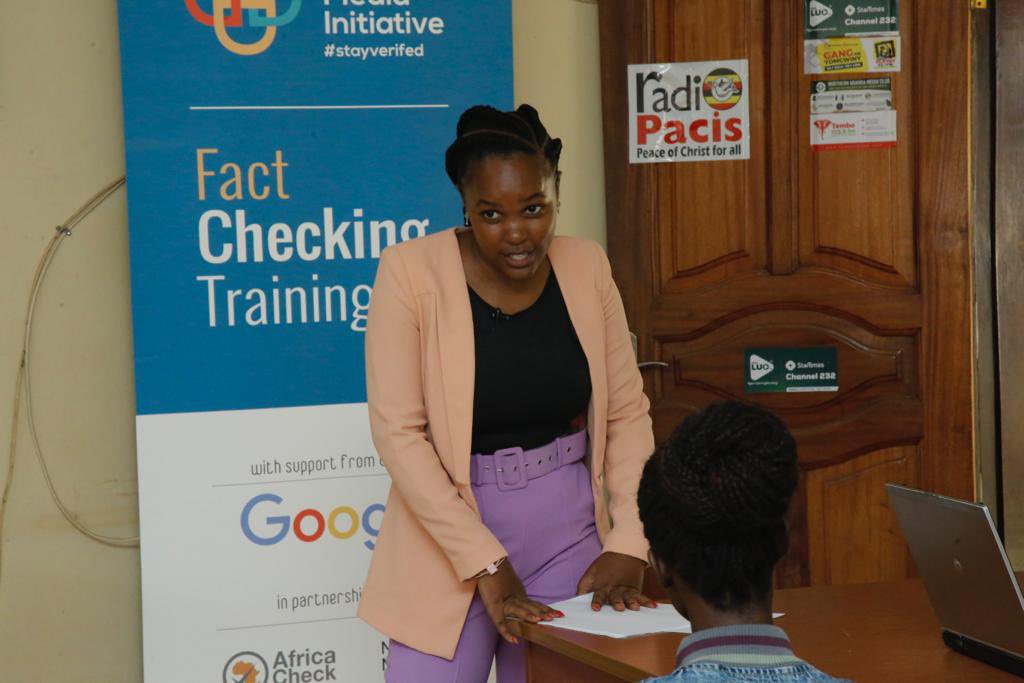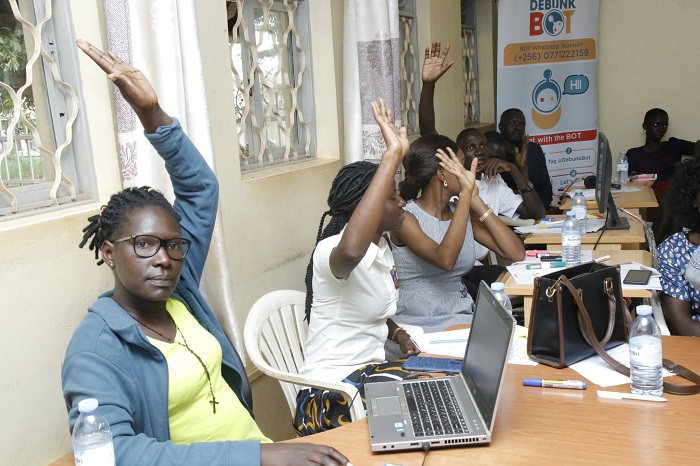GULU, UGANDA: A total of 20 journalists from across Northern Uganda are undertaking two days of intensive theoretical and practical training on fact-checking to debunk fake news, misinformation and disinformation.
Organised by the Debunk Media Initiative at the Northern Uganda Media Club in Gulu City, the training runs from Tuesday, July 11th, to Wednesday, July 12th, 2023.
Through the training, Debunk Media aims to enhance journalists’ skills and capacity to counter false information across the media domain to serve their audience with verifiable, measurable, and evidence-based journalistic content.
Edgar Matthew Karuhanga, the lead fact-checker at Debunk Media Initiative, describes the rate of circulation of false information in Uganda as ‘absurd.’
“The situation in Uganda is absurd. Our media space has been flocked with many pieces of information, and through this, a lot of misinformation, mal-information, and disinformation find themselves in the mainstream media, and it is something Debunk is working hard to counter,” Karuhanga said.
According to Karuhanga, the situation is alarming on social media in this digital age, where everybody has a platform to speak without verification, and research has seen many people posting exaggerated content that carries sensations and is 100% fabricated.
False information is categorised into misinformation, disinformation, and mal-information.
Misinformation is when someone shares accurate or inaccurate information, but he or she shares it unknowingly without the intention to spread false information. Disinformation occurs when someone shares incorrect information with the intent to harm, whereas Mal-information occurs when someone shares private information in the public domain.
Karuhanga says the most common generators of false information are politicians who want to manipulate their voters with false information in order to leverage their political capital. Another critical sector, as he noted during the COVID-19 fight, is health.
“In the health sector, we get a lot of misinformation about the use of remedies to cure diseases from people,” he said, adding that the training will enrich the journalists with knowledge, skills, and tools to debunk fake news or false information shared in the public domain before they can use it in their reporting.

The trainers observed that in Uganda, false information typically enters the mainstream media, including national television and radio, through some presenters, reporters, and guests hosted on the shows, who end up spreading their own propaganda.
Teddy Dokotho (DailyMonitor), one of the trainees, says journalists, are often swayed away by information from the experts and they forget to ask themselves whether the information could be factual or not.
“Most of the time, journalists take information from sources especially the experts as gospel truth. The majority doesn’t bother to crosscheck for facts, but with today’s, I have learned the need to fact check,” said Ms Dokotho.
She promised; “I need to see the change in the kind of stories I write. I realised that not all information that I come across is the gospel truth; I will need to verify, crosscheck, and double check to make sure the story has all it takes.”
Rukia Nabbanja, Head of Production at Debunk Media Initiative, cautions journalists to be very careful while handling experts who tend to hide behind technical terms and data. She says journalists ought to go the extra mile to find out the meaning of such terms and break them down for their audience, as well as verifying sources and the authenticity of the data that sources usually quote.

Another trainee Patrick Uma, a reporter for Radio Favour in Gulu City, appeals to fellow journalists to engage themselves in fact-checking as they have a lot of responsibility to provide accurate information in this time when social media and citizen journalism are fighting for professionalism in journalism.
“We leave in a time where there is a lot of misinformation, disinformation and mal-information and this training is so important for us as journalists if we are to be a credible source of information. The public still looks at us as the people with credible information and if we don’t get this training, we lose out and become absolutely irrelevant,” said Uma.
Karuhanga in a separate interview with DailyExpress revealed that the rise of social media has opened more gates for false information to infiltrate major media houses and they have a burden to train journalists across Uganda to counter misinformation, mal-information and disinformation.
However, Susan Achola, a News Editors at Wang’Oo Fm in Agago district said as an editor she has been employing fact-checking through reading documents, seeking comment from independent experts and phone calls to verify some claims their sources normally give.
Achola expresses her delight in the ongoing training, confident that it will provide her with new knowledge and skills, as well as exposure to begin using digital tools to fact-check false information.
About Debunk Media Initiative
Debunk Media Initiative is a fact-checking organisation creating and editing journalistic content by fact-checking information published on the internet.
This is the second training in a month that Debunk Media Initiative, with funding from Google and Africa Check, is providing to Ugandan journalists. Two weeks ago, the organization also trained 20 journalists in Kampala on the same.
The journalists taking part in the ongoing training at NUMEC come from the districts of Lango, Acholi, and West Nile.
Do you have a story or an opinion to share? Email us on: dailyexpressug@gmail.com Or join the Daily Express WhatsApp channel for all the latest news and trends or join the Telegram Channel for the latest updates.


